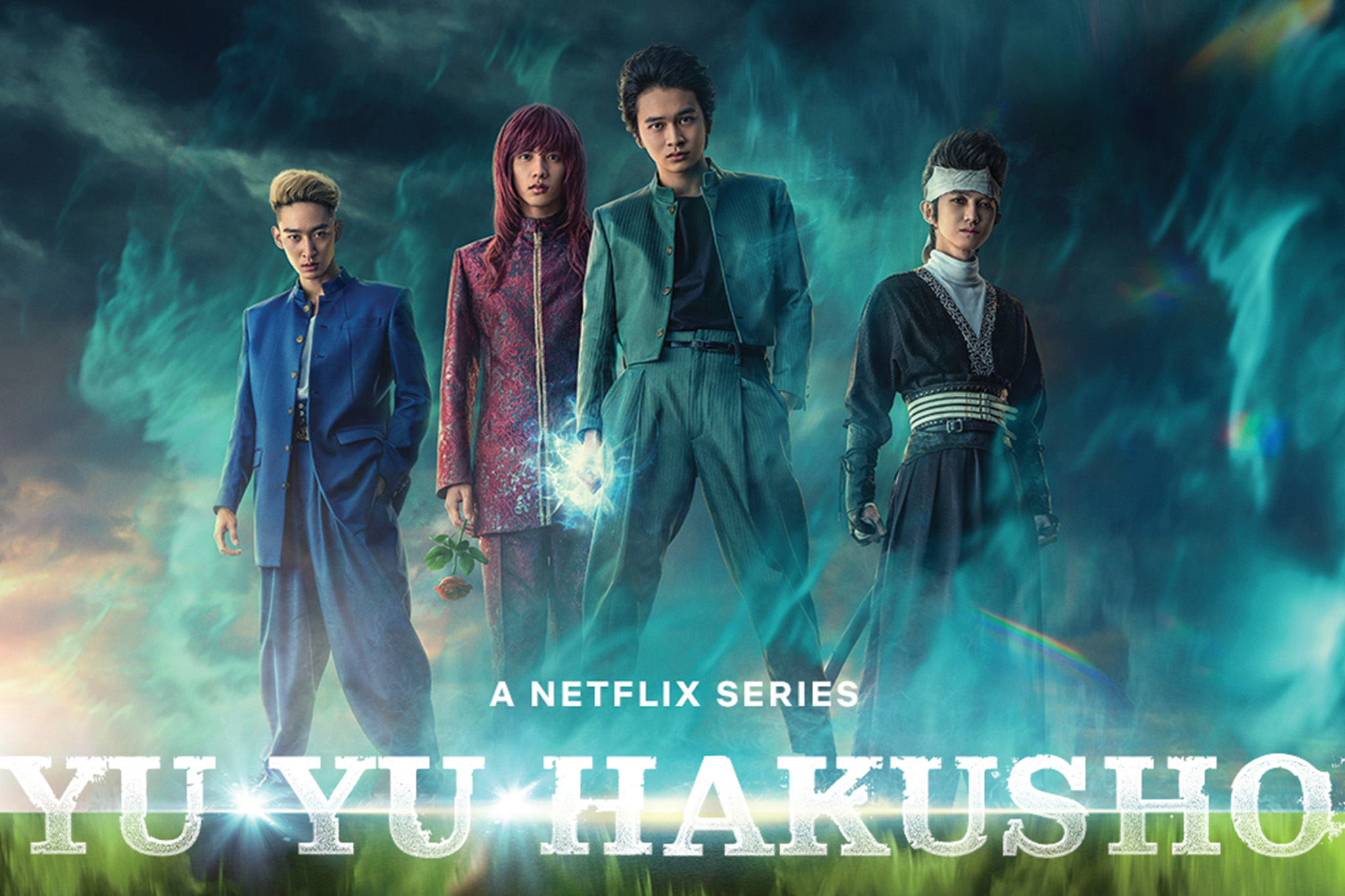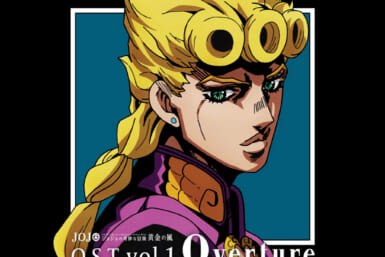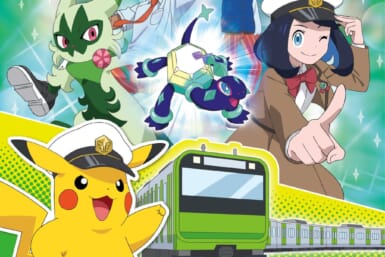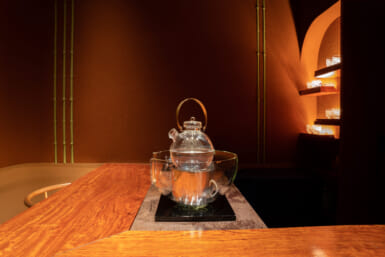Takumi Kitamura just landed in one of the most bizarrely specific acting niches imaginable. Between Tokyo Revengers and the recently-released Netflix adaptation of the YuYu Hakusho manga and anime, it’s twice now that he’s played a high-school delinquent who was a middle-schooler in the source material and who dies after being hit by a vehicle and has something paranormal happen to him. It’s a shame, though, that 2023’s YuYu Hakusho wasn’t even more like the Tokyo Revengers films, the first of which was flawless, and instead landed in the lukewarm territory of “well, it could have been a lot worse, I guess.”
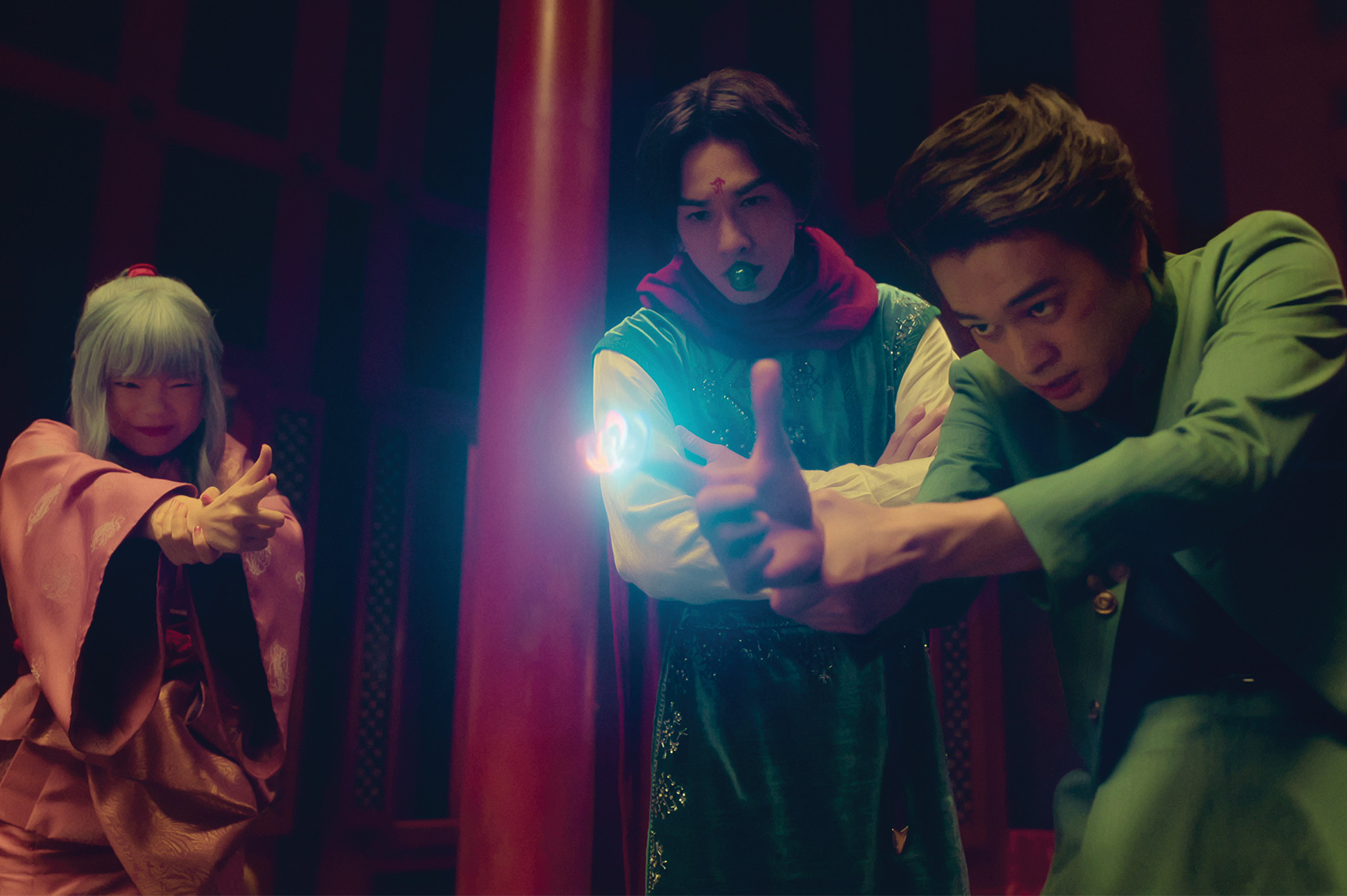
Just to Catch You Up Real Quick
Fourteen-year-old delinquent Yusuke Urameshi (17 in the Netflix show) is an almost inhumanely powerful brawler who gets fatally hit by a car while saving a child’s life. His sacrifice throws the afterlife into confusion as no one suspected the rude teen to be capable of such sacrifice. Koenma, the son of the ruler of the Spirit World, ultimately allows Yusuke to return to life… so he can use him as a Spirit Detective solving cases dealing with demons and other supernatural beings posing a threat to humanity. The resurrected Yusuke’s signature weapon is the Spirit Gun, a blast of energy shot from his finger.
The YuYu Hakusho manga by Yoshihiro Togashi ran for 19 volumes from 1990 to 1994 and was accompanied by an anime adaptation (1992 – 1994), both very successful thanks to their mix of fight scenes, humor, memorable villains, and colorful characters. The Netflix show has one of those, tops.
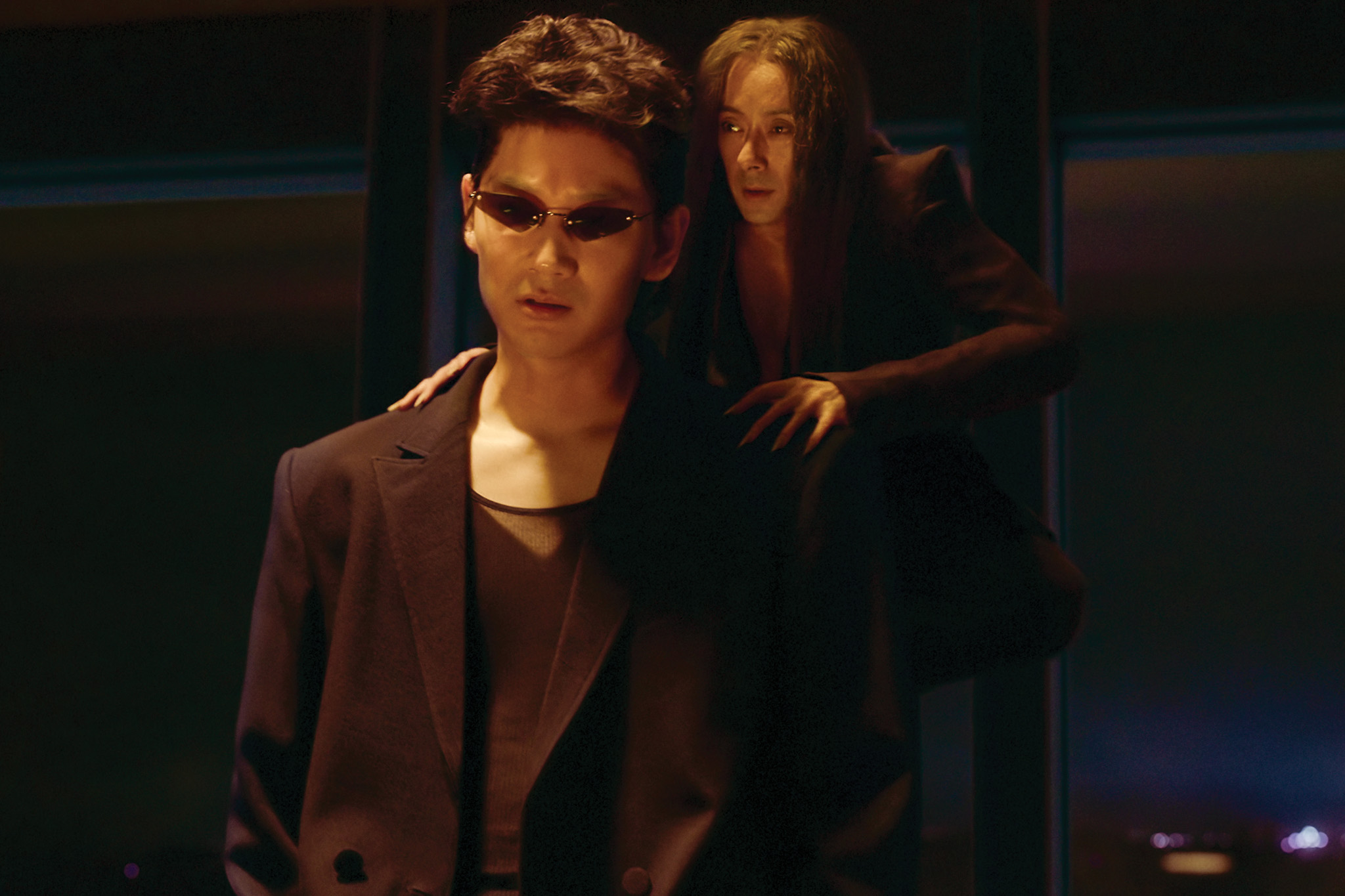
Rushing Joylessly Through Muted Tones
Netflix’s YuYu Hakusho is very dark. Not just tonally like the manga and anime, but also color-wise. The animated version of Togashi’s work was radiant, with a lot of characters being color-coded with bright green, blue, red, pink/magenta. The basic hues made it into the live-action adaptation but were made much darker while the clothing and looks of the characters stayed the same. The result is a weird feeling of watching the anime through sunglasses, especially during scenes taking place at night/unlit areas (meaning most of them).
Besides light, another thing the live-action show yanked out of YuYu Hakusho was the humor. Yoshihiro Togashi is a master of weaving together serious plots and tear-jerking character moments with wacky cartoon humor, always knowing when to pull back on the silliness and where to amp it for maximum effect. The Netflix show does none of that, choosing to instead double-down on the darkness and drama, and when you pair that with a character shooting demons with his magical finger gun, the effect is comical in all the wrong ways.
Maybe it all could still have worked out if the characters were well-defined but we don’t get that either. Because the live-action YuYu Hakusho consists of only five episodes, it has to take a lot of shortcuts to tell at least half a story arc during its runtime. A great example of this is the character Kuwabara, Yusuke’s self-styled archrival who constantly tries to best him in a fight. Early on in the anime, he got an entire episode where he allowed himself to be beat up on a daily basis to help someone out. In the live-action adaption, this is condensed to maybe one minute of Kuwabara (played by Shuhei Uesugi) being apologetic to his hurt friends. In the end, the show’s biggest problem is the tiny runtime, and it goes deeper than just deficient characterization.
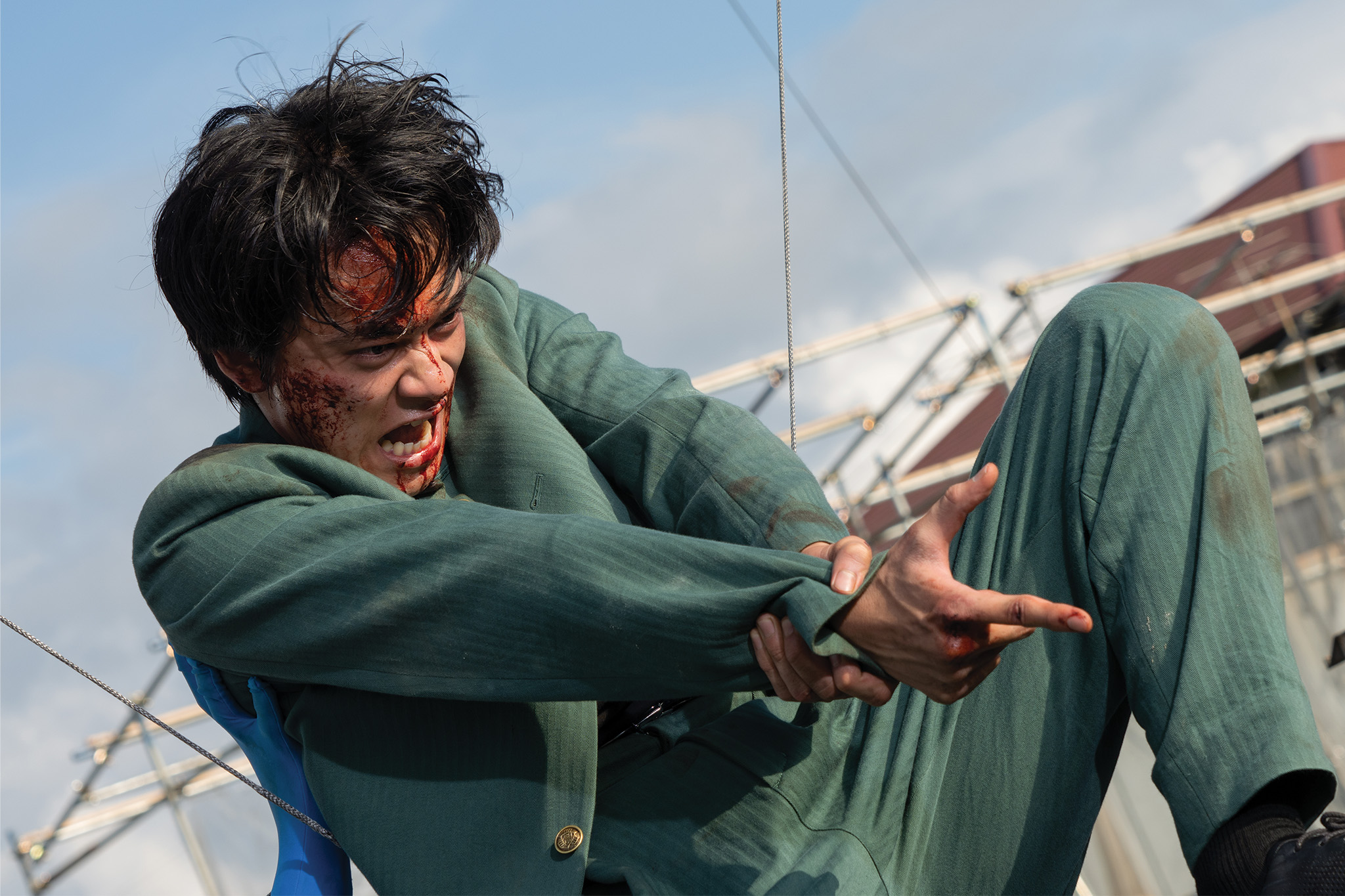
Good Effort but a Flawed Starting Premise
Credit where credit is due: the action in Netflix’s YuYu Hakusho is phenomenal. Much better than the anime in places, all without having the benefit of being animated. Fast, acrobatic, beautifully violent, it’ll undoubtedly bring in a lot of casual viewers to the show. Director Sho Tsukikawa and writer Tatsuro Mishima went out of their way to do at least one thing right given the constraints of telling a rich, complex story in five episodes. But if there wasn’t enough time, money, or interest to do YuYu Hakusho properly with at least a full regular-season-worth of episodes, maybe the live-action series shouldn’t have happened.
YuYu Hakusho is anime and manga royalty. Its similarity to Tokyo Revengers isn’t coincidental. The comic and animated series have influenced some of the biggest Japanese franchises out there: Bleach, Jujutsu Kaisen, Bungo Stray Dogs etc. Hell, there’s even a YuYu Hakusho Easter egg on the American TV series Supernatural. But even if YuYu Hakusho had no influence on anything, it still deserved more respect when being turned into a live-action show.
The Involvement of Yoshihiro Togashi
Yoshihiro Togashi is a very particular creator. When talking about the end of the YuYu Hakusho manga, he mentioned his health problems and how he pushed through them and his dissatisfaction with some of his pages by focusing on the fact that at least he was doing things his way. That he had full control over the final product. It doesn’t look like Yoshihiro Togashi had much control over the live-action adaptation of his famous work. He was absent from the show’s promotional campaign outside one barely-publicized instant where he apparently visited the YuYu Hakusho set and was nice to the actors. He’s credited on IMDb as a co-writer of the first episode, but that has been hard to verify. In any case, his involvement with Netflix’s YuYu Hakusho seems to be tangential at best.
Perhaps it’s time we talked about creators having more say about how their works are adapted. If not for moral reasons, then at least practical ones. Eiichiro Oda was actively involved in the production of the live-action One Piece, resulting in what some have dubbed the best live-action anime ever. Active creator involvement should be the norm. If the live-action YuYu Hakusho starts a conversation about it, it will have done a lot of good. If not, at least the fight scenes were fun.

